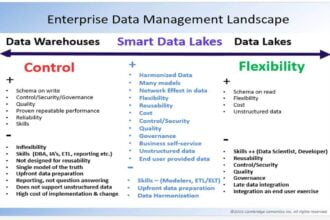 The cloud is an ever-changing infrastructure that is continuously being applied to different facets of life in order to provide benefits to human kind. There is a lot we can learn from hard data and many of the traditional limits of computing such as power, space and cost have been eliminated due to the elastic nature of cloud computing.
The cloud is an ever-changing infrastructure that is continuously being applied to different facets of life in order to provide benefits to human kind. There is a lot we can learn from hard data and many of the traditional limits of computing such as power, space and cost have been eliminated due to the elastic nature of cloud computing.
 The cloud is an ever-changing infrastructure that is continuously being applied to different facets of life in order to provide benefits to human kind. There is a lot we can learn from hard data and many of the traditional limits of computing such as power, space and cost have been eliminated due to the elastic nature of cloud computing. The cloud has embodied a new era of emerging markets that has caused many big name vendors to change their strategy in order to survive. These emerging cloud technologies have the capacity to be the next big thing in terms of consumer technology.
The cloud is an ever-changing infrastructure that is continuously being applied to different facets of life in order to provide benefits to human kind. There is a lot we can learn from hard data and many of the traditional limits of computing such as power, space and cost have been eliminated due to the elastic nature of cloud computing. The cloud has embodied a new era of emerging markets that has caused many big name vendors to change their strategy in order to survive. These emerging cloud technologies have the capacity to be the next big thing in terms of consumer technology.
The Cloud in Your Car
Both the Consumer Electronics Show and IBM’s Pulse2014 conference discussed the future of driving your car using the cloud. IBM recently partnered with Continental Automotive in order to begin working on a project where your car can be controlled autonomously by the cloud. The new technology uses data from all sides of the car in order to follow speed limits and ensure safe distances between other vehicles. The cloud could make car crashes a thing of the past. While this blurb may seem fringe now, reread this post in 50 years and judge for yourself.
Can the Cloud Replace a Credit Card?
In the late 20th century, a credit card number was dialed into a mainframe that gave an authorization over an analog phone modem. This technology matured into having the transactions being initialized almost instantly given the robust networking technology that is available today. One of the things you have noticed is that everything in technology is becoming centered on having a mobile device, and consolidating the things you do onto your personal mobile device is key for being able to live a life where you are not having to carry several different accessories.
Host card emulation solves this problem by allowing your mobile device to act as a credit card. Some point of sale systems already incorporate the PayWave technology. This allows a consumer to wave their card instead of swiping it in order to complete their purchase. By using the near field communication setting on a person’s mobile device, the device can communicate with the cloud which will facilitate a unique identifier for your account. This can enable the transaction using your phone or mobile device instead of having to get the plastic card out of your wallet and swipe or wave. Receipts could be delivered to your phone in PDF format which would only help save on paper costs for receipts for businesses, as well as helping the planet achieve its environmentally friendly goals.









